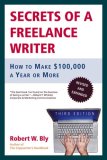Most of this is sobering and borderline depressing. Hey, I didn’t even start my writing business until I had stopped getting income from my day job. And “benefits”? What are those? But I did feel a jolt of pride at this part:
7. When you do buy something, buy the best you can afford — and then run it into the ground.
I am not now, nor have I ever been, an advocate for cheap crap. Cheap crap sucks; it’s badly made, it breaks, and then you have to go buy a replacement, so effectively the cost of whatever cheap piece of crap you bought is twice what your originally paid for it (or more, since having learned your lesson, you didn’t buy cheap crap the second time).
I am an advocate for thrift, however, and in my life, being “thrifty” means that you buy well, and then you use what you buy until it no longer has value. You buy it for the long haul. This was something that came naturally to people of my grandparents’ generation (the Great Depression kind of drummed it into them) but these days, when the marketing folks at Apple strive to make you feel a wave of intense, personal shame that you didn’t pony up for the Mac Air the very instant it was released, this is a virtue we’ve lost track of. And it’s true enough that if every single American thought like this, the economy would collapse even faster than it is doing at the moment. But you know what? Let the rest of America worry about that. We’re here to worry about you.
He says more under point 7, but you can read it for yourself if you want to. While the rest of the post was painful but needful to read, this found a place in the Hey, I’m doing that! department. Why? Because I read the post on the screen of my G4 iBook (which, by the way, was a very generous gift from a friend that cost me nothing).
But I almost slipped.
This summer I thought my iBook died. Since I have a daily gig, and my iMac had already died, I really had to do something quick. I walked into the Apple store not sure what I could do, but in the back of my mind, I confess, was new toy and credit. All that shiny newness and I had an excuse this time, right?
But something hit me by the time I reached the Genius Bar. If these things didn’t last more than two years, then what was the point? I don’t care how shiny it is new, and how well it works until it doesn’t work, two years is too short.
It turned out the only problem with the iBook was the battery (which is extremely expensive in my opinion, but nothing compared to a new MacBook). Even better: they fixed my iMac for free because the problem was related to a recall (The logic board had been replaced but they believed the problem with the logic board could have stressed the power supply and they took it upon themselves to replace it as well though this was a year later).
I walked out of the Apple store more than satisfied with what I had.
I’d love to continue with Mac, especially since they affirmed their value in several ways to me that day. But, truthfully, when it is time to replace the laptop, I’ll probably have to go to PC. Like Scalzi said, you buy the best you can afford.




